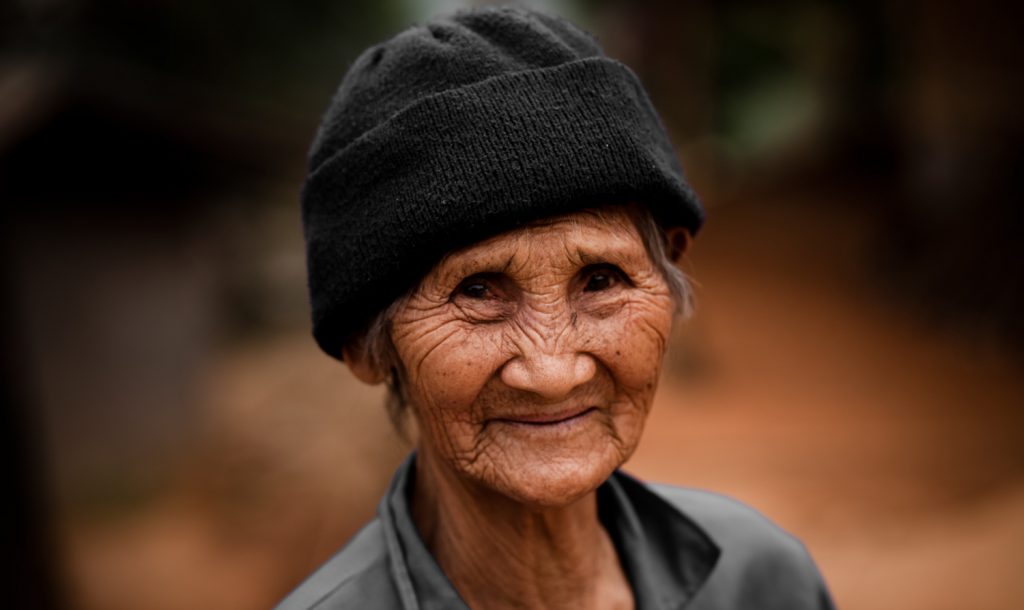To mark International Women’s Day, Kriangsak Teerakowitkajorn reports on the challenges facing working women in Thailand, and the critical need to change gender norms and recognise caring and reproductive labor.
On the occasion of this year’s International Women’s Day, Chiang Mai’s Northern Labor Network took the opportunity to organise an event for women workers to share their stories and express their demands.
As moderator of the panel, I found myself surrounded by a couple of dozen remarkable women, whose work is concerned with elderly care, cleaning, sewing, cooking, serving food, washing dishes and clothes, and even construction. Inspired by the issues raised by these women workers, I want to share some of my observations, as a man who considers himself an ally to the causes of women workers in an often gender- and labor-blind society.
Living and working in one of the most vibrant Thai cities, with a rising demand for care labor from Asian retirees and Western seasonal vacationers, these women are supposed to fare relatively better than those working in the rest of the country – not to mention that Thailand as a whole is faced with challenges from its aging workforce. As the majority of women workers in the Northern Labor Network are migrants from neighboring Myanmar or Thailand-born without nationality, their choices are limited by law to three broad categories – domestic, service, and manual work including construction and farm labor. These jobs are considered by the locals as too menial or undignified.
The organisers chose four women speakers whose occupations represent the types of work taken by women locally: domestic, restaurant, construction, and textile- piecework labor. Three are migrants, while one is a middle-aged Thai woman recently dismissed by a textile factory relocating to the Thailand-Myanmar border Special Economic Zone. Compared with her dismissed colleagues who remain unemployed, she was lucky to find another job—in a small garment factory. Since she is paid baht 1.50/ $US 0.04 per piece for a shirt or trouser, she is obliged to sew as many pieces as possible per day. As the sole breadwinner, with a husband too sick to work, she brings additional piecework home, to complete in the evenings and on Sundays.
Another woman currently works as a maid in a house, where she and her child also stay. Because her employer pays less than the daily minimum wage (baht 308/$US 8.80), she has to work a second job in a dormitory, where she is responsible for all the cleaning and occasional building maintenance, such as plumbing and light fixing. Among the panelists, she is the only single mom. Nevertheless, her situation is not much different.
A construction worker – a woman living with her husband –is also the primary caretaker of her two sons. She says that she works alongside men, but receives a lesser wage than her male counterparts. When I asked about the division of labor at home, she laments her husband’s lack of reliability as ‘his mood swings up and down’.
Informal work accounts for over half of employment in Thailand; some problems, such as a lack of access to paid parental leave, are commonplace. However, as these women are mostly ethnic migrants, they face further problems, the most flagrant being wage theft, sexual harassment, and occasional ethnic profiling from the police and immigration officers.
Much care work takes place in areas considered highly private – a gated residence, kitchen, dorm hallway, an enclosed construction site – and thus not as rigorously regulated as in the so-called formal sector. As a result, the specific labor rights violations experienced by working class migrant women are shaped by the intersection of gender and ethnic discrimination.
Care work is gendered to begin with, but these women’s work does not end when they go home. Within the safe space of the event, the women expressed their frustration towards their partners for being unsupportive: by not sharing household responsibility equally. Several express that despite their status as breadwinners, the men in their lives still see household chores as women’s work.
Of course, this problem is not simply personal; it is also social and cultural. Such realisation translates into the long demands coming out of this event, ranging from recommended incorporation of gender equality in formal education to proposed expansion of welfare for maternity leave and a new law enforcing men’s responsibility for child expenses after divorce. Given women’s outsized roles in the caring economy, it is ironic that women call for the urgent needs to have childcare services that address their work and life’s demands.
The existence of International Women’s Day is a testament to the political power of working class women, and their struggles at the intersection of gender, ethnicity and labor. I believe wholeheartedly in the feminist saying that ‘the personal is the political’. As this event shows, within political movement, this can begin with the creation of safe spaces in which women can freely talk about their lives and express their hopes and dreams as well as anger and frustration –on a regular basis.
More importantly, changing the gender norms ingrained in the patriarchal capitalism requires both private and collective actions. As men, we can collectively take up the seemingly insignificant task of sharing housework on the daily basis, while supporting women’s own acts of political rally. As a whole, recognising that caring and reproductive labor is also productive work – essential to the social reproduction of our society – is integral to cultural and institutional arrangements that give working women the respect and dignity they deserve.
Kriangsak Teerakowitkajorn is a Thai political economist, and trainer for social change. He is currently a PhD candidate at the Department of Geography, Syracuse University, researching the geography of labor activism in Thailand’s industrial estates.
 Facebook
Facebook  Twitter
Twitter  Soundcloud
Soundcloud  Youtube
Youtube  Rss
Rss 